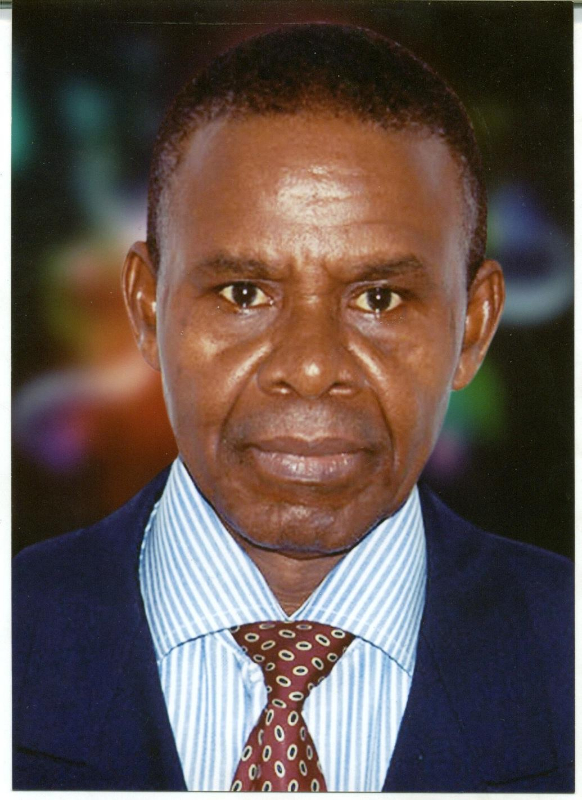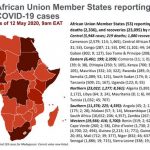
By Chima Nwafo
Sometime in the mid-1980s, I read an American novel where a character is described as a man unable to recognize trouble even when it sits on his laps. Three decades on, one can say that such a character fits snugly into the attitudinal disposition of the Nigerian leadership – from the Presidency to the local government. Nigeria is often overwhelmed by avoidable existential disasters that were ignored at the pristine state.
This has become a norm and so does not require specific evidence or proof especially as this column has in recent past pointed to actions taken mechanically without indepth analysis to arrive at a strategic solution. Besides, not much has changed since Prof Chinua Achebe wrote the iconic booklet, The Trouble With Nigeria, where he identified leadership failure as the country’s major problem.
A recent publication entitledPresidency, Governors Fussing Over Covid-19 Yet Unfazed About Endemic Health Issues, averred: “Nigerians in the oil-producing areas are still threatened by deadly gas flares, soot and pollution from oil exploration and production activities in the Niger Delta. While this cannot spread like a virus, it has a longer-lasting deadly effect on both people and the environment….”

Not long after came media reports that “residents along the Atlantic coastline in Delta, Bayelsa, Rivers and Akwa Ibom states in Nigeria have observed (not published) massive death of croaker fish species since February, raising concerns of increased toxicity of the territorial waters,” which is a monumental environmental woes on the health and livelihood of both indigenes of coastal states and consumers of aquatic products from the region. From the video clippings and photographs, it is a pitiable sight of hundreds of thousands of the fish species floating on the coastline. The sight is so touching that in humane societies, first concern would be the massive atrophy of marine life in their thousands. That’s cruelty of the highest order. Fishing is major occupation and source of livelihood of the people – from Akwa Ibom, Rivers, Delta to Bayelsa State – in their millions. Yet, no one seems to appreciate the magnitude of the mess created.

Both states and the Federal government who is the ultimate landlord of the Niger Delta are unfazed, so long as it would not affect oil price, stop crude oil exploitation or attract funds recommendation from the World Health Organisation. Not even the immediate hazard of putrefaction emitting from such mass carcass of rotting fish which simultaneously poisons the water and pollutes the air. No, our governors are really too busy with the COVID-19 war without any provision of sustenance for the very people you want to protect from virus infection. Neither have we heard any apology from the President who distributed expired/poisoned rice to citizens as COVID-19 palliative. In the true Nigerian public service spirit, the government agency set up to protect the region and the environment is the major defender of likely culprits of the fish-kill, insisting that oil companies are not to blame. In their characteristic way of talking before thinking, the boss promises to investigate the source or cause, later.
“The Nigeria Oil Spill Detection and Response Agency (NOSDRA) was widely reported to have clearly stated that there is no evidence that oil and gas operations may have impacted the aquatic environment as being claimed in respect of the ‘fish kill incident’. Mr. Idris Musa, Director-General of NOSDRA, had said that the agency found no connection with oil spills to the dead fishes and was looking at other probable causes.” Pardon my introspection! In the days when square pegs were placed in square holes, how would Dr. Evans Olu Aina, first Director-General of the defunct Federal Environmental Protection Agency, have reacted to this monumental threat to the environmental safety and livelihood of millions of Nigerians? Definitely, we would have seen some action and challenging authoritative professional interrogation that would have put some organizations on their toes.
Just ponder over this: “There is no evidence that oil and gas operations may have impacted the aquatic environment as being claimed in respect of the ‘fish kill incident,’ said Musa. Later he was quoted as saying: “The agency found no connection with oil spills to the dead fishes and was looking at other probable causes.” Pray, do you need to be an expert to know that “oil and gas operations” are NOT same as “oil spill?” Yet, the NOSDRA boss first exonerated oil companies, which includes the poorly managed and corruption-ridden Nigeria National Petroleum Corporation (NNPC) and its all-powerful joint venture partners. But a courageous environmental activist, Mr Furoebi Akene, “had alleged that the dead fishes littering the Niger Delta coastline were caused by the discharge of toxic chemicals from Shell’s operations at Ogulagha in Delta State.” Shell, as would be expected, denied, promising to cooperate with NOSDRA to investigate the cause. That is very similar to enquiries set up by the Federal Government to find out who killed Bola Ige and other high class political murders. If you doubt this, see the list of Federal Government agencies involved in what a simple honest forensic analysis would untangle.

“NOSDRA proceeded to collect samples of water, sediments and some of the dead fishes for laboratory testing. The agency brought on board other relevant agencies of government that have mandate on our territorial waters. In particular, the Nigerian Maritime Administration and Safety Agency (NIMASA), Nigerian Institute of Oceanography and Marine Research (NIOMR), Federal Institute of Fisheries Research, and National Environmental Standards and Regulations Enforcement Agency (NESREA).” The outcome of such an enquiry is not only predictable, by the time they complete the assignment, everyone would have forgotten the tragedy.

Since crude oil exploration is not peculiar to Nigeria, it’s worth our while to take another look at how the oldest petroleum exploration and production country perceives the activities of the industry vis-à-vis the environment.
Quite unlike Nigerians, the United States’ Congress men and women who are wholly committed to the well-being of their respective constituencies realise that petroleum has many uses, and the environmental impact of the petroleum industry is also “correspondingly extensive and expansive.” For example, “climate warming, ocean acidification, and sea level rise are global changes enhanced by the industry’s emissions of greenhouse gases like methane and micro-particulate aerosols like black carbon.” Nigeria is not exempted from all these effects.
This compelled the passage of the following laws: Oil & Gas Regulation; The Clean Air Act (CAA) section 112(d) to control hazardous air pollutants (HAP) emissions at major sources; Clean Air Act; the Clean Water Act; the Safe Drinking Water Act; CERCLA (Comprehensive Environmental Response, Compensation, and Liability Act); Emergency Planning and Community Right-to-Know (EPCRA); TSCA (Toxic Substances Control Act); Oil Pollution Act and Spill Prevention Control and Counter-measure Plans and Soil pollution hazards. Of the 11 legislations designed to protect the people and the environment from the extensive and expansive corresponding impacts of oil production activity, including the right of oil-producing communities to know, only one applies to oil spill.

However, the relevant state governors should not shirk their responsibility to protect the lives and livelihood as well as the health of the populace. They have the major challenge of probing the immediate and remote and likely causes of this carnage. They should collect their own samples of the dead fishes and water and sediments to a credible laboratory for an authentic non-political test and analysis, even if it means taking it overseas to ensure accuracy. Last week, reports from the Western media showed that over 260 East Africans died as a result of flood. That is more than what the dreaded killer coronavirus has killed in Africa to date.

And in Nigeria, the media also reported the commendable gesture of a Kogi lady who realised that ecological challenges begin gradually due to neglect and ignorance. A not-for-profit organisation, The Mona Audu Foundation, is seriously concerned by the 10-year continuous spewing of fumes and greenhouse gases into the environment by Dangote Cement. It decided to institute a legal action against the Aliko Dangote Group of Companies for polluting the environment through its activities in Kogi State.
President of the Foundation, Princess Zahrah Audu, who made this known in a statement on Friday, May 1, in Abuja, according to EnviroNews, said the action was on behalf of host communities: Okaba/Odagbo in Ankpa and Obajana axis of the state.
“The emission of gas in the area had constituted a great deal of long-term health risk for residents and future generations. The group has the largest carbon footprint in Africa. It has destroyed the communities of Okaba/Odagbo in Ankpa, where it mines coal to power its factories. The residents have begun to develop health issues, ranging from eye problems to respiratory difficulties due to the poor mining methods applied in harnessing the coal for powering its factory,” the princess lamented.
The people may continue to suffer and die from the health hazards and impoverishment of these deadly industrial activities long after the COVID-19 crisis, if nothing is done, which is more likely, going by the Ogoni and Oloibiri experience.
*Nwafo, Consulting Editor, News Express/Environmental Analyst, can be reached on: [email protected]; +2348029334754.
Share your story or I Witness Reports with us 24/7 via: SMS: +234 (0)9076248001
Whatsapp: +234(0)8072022024, Email: [email protected], follow us on our social platform. Subscribe to our YouTube @Gatmash TV. Gatmash Blog is one of the most sought- after news portals, with increasing audience, exclusive breaking news and reports across the globe. Plus more. Website: www.gatmash.com
For advert placement, contact us today via email: [email protected] or call our hotlines on Tel: +234(0)9076248001





